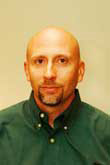By 2009, Holly Yettick released a study of how educational research is portrayed in the mainstream media , focusing on educational reporting in three major publications--New York Times , Washington Post , and Education Week. Yettick discovered that university and government-funded research received the most media coverage, but that proportionately, think-tank reports were overrepresented by the media.
University research occurred 14 to 16 times more often than think-tank reports, but the media covered university research only twice as often: "As a result, any given think tank report was substantially more likely to be cited than any given study produced by a university."
Yettick proposes three recommendations for combating this phenomenon among education journalists reporting on research. First, in order to improve the quality of evidence stakeholders receive through the media, reporters should begin to seek out peer-reviewed research through all entities conducting research.
While not without flaws, peer-review remains the gold standard of evaluating research, as reflected in the medical and pharmaceutical fields. Before any research can be deemed credible, we must know the who's and how's of the research process. Peer-review provides oversight for bias and corruption in the research process, but it also adds nuance to the discourse.
Next, reporters dealing with educational research should implement peer-review strategies on think-tank reports themselves; if no peer-review is available, or if the reporter is unable to find an expert to help evaluate the report, Yettick explains, "the article might include the sentence, "Other experts in the field have not yet had an opportunity to assess this study, which has not gone through peer review, a process that serves as an important quality control for research in education.'"
Finally, all media reports of educational research should provide an active link to the research itself, facilitating stakeholders drawing their own informed conclusions about the quality of the research.
Yettick also provides in the study useful appendices that should guide us all as we contemplate the value of any research or report we come across. One appendix details dozens of think-tanks and the ideology of each. The media covered think-tank reports during the time of the study ranging, out of 99 think-tanks , from 11% liberal, 52% centrist, and 34% conservative.
When the media reports in the same way on a think-tank study that is not peer-reviewed as the media reports on a peer-reviewed university study, the implication is that the evidence is equal--when it is highly likely that the evidence is not of equal rigor. Advocacy reports, whether from the left, center, or right, are just that, advocacy.
Recently, Jay Matthews, who has earned a reputation as a journalist with credibility about education, weighed in again about vouchers, "Vouchers Work, But So What ?"
The piece focuses on an updated report from the Foundation for Educational Choice, as Matthews characterizes:
"Greg Forster, a talented and often engagingly contrarian senior fellow at the Foundation for Educational Choice, has expanded a previous study to show that nearly all the research on vouchers, including some using the gold standard of random assignment, has good news for those who believe in giving parents funds that can be used to put their children in private schools. Students given that chance do better in private schools than similar students do in public schools, the research shows. Public schools who are threatened by the loss of students to private schools because of voucher programs improve more than schools that do not have to worry about that competition, the research also shows."
Matthew's position as a journalist focusing on education and the surface credibility of the think-tank report combine to mask, once again, what lies behind the report--the earlier incarnation of "Win-Win" was promoted with the same positive claims about choice, but later unmasked in a review:
"This new report purports to gather all available empirical evidence on the question of the competitive effects of vouchers, finding a strong consensus that vouchers help public schools. But the report, based on a review of 17 studies, selectively reads the evidence in some of those studies, the majority of which were produced by voucher advocacy organizations. Moreover, the report can't decide whether or not to acknowledge the impact of factors other than vouchers on public schools. It attempts to show that public school gains were caused by the presence of vouchers alone, but then argues that the lack of overall gains for districts with vouchers should be ignored because too many other factors are at play. In truth, existing research provides little reliable information about the competitive effects of vouchers, and this report does little to help answer the question."
At the very least, the updated "Win-Win" should be placed in the context of the earlier flaws in the 2009 version; but we should also expect to withhold endorsing this version until the work is reviewed.
Yettick opens her analysis with this argument about the importance of media coverage of educational research: "Because the research featured in these outlets influences policymakers, practitioners and parents, it is important to know who produces the educational research mentioned in the news media."
Combined with Gladwell's advice, Yettick's recommendations are a start, but I am certain that education reform will continue to fail if the media continues to fail the public discourse about our society, our schools, and our need for that reform.
(Note: You can view every article as one long page if you sign up as an Advocate Member, or higher).





